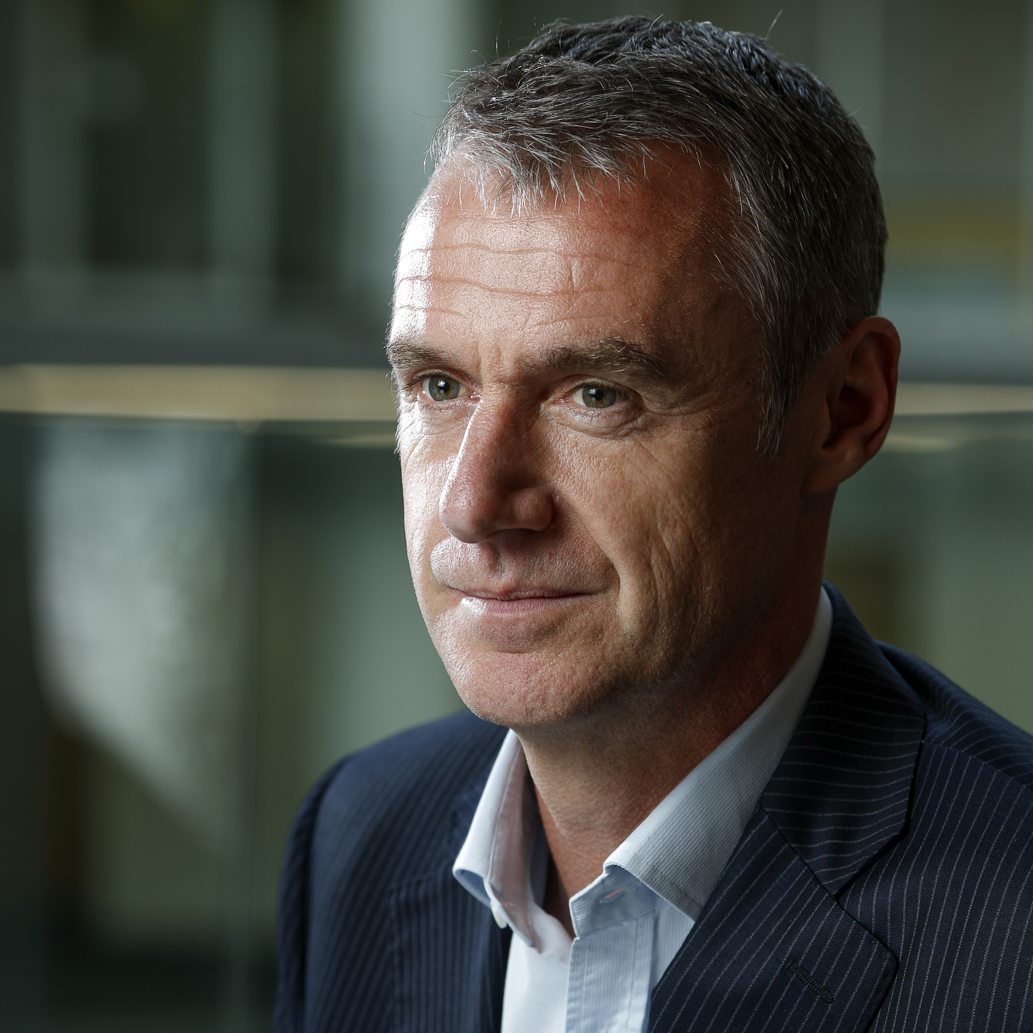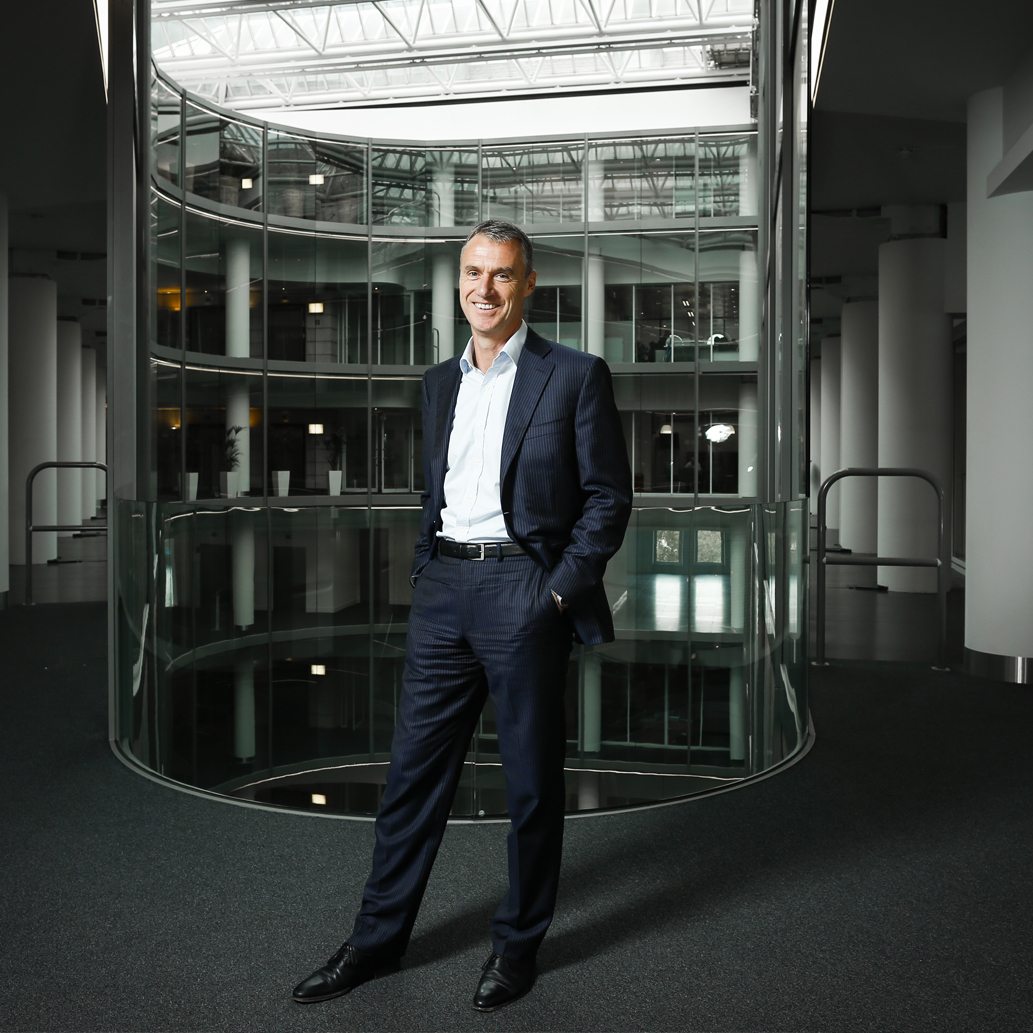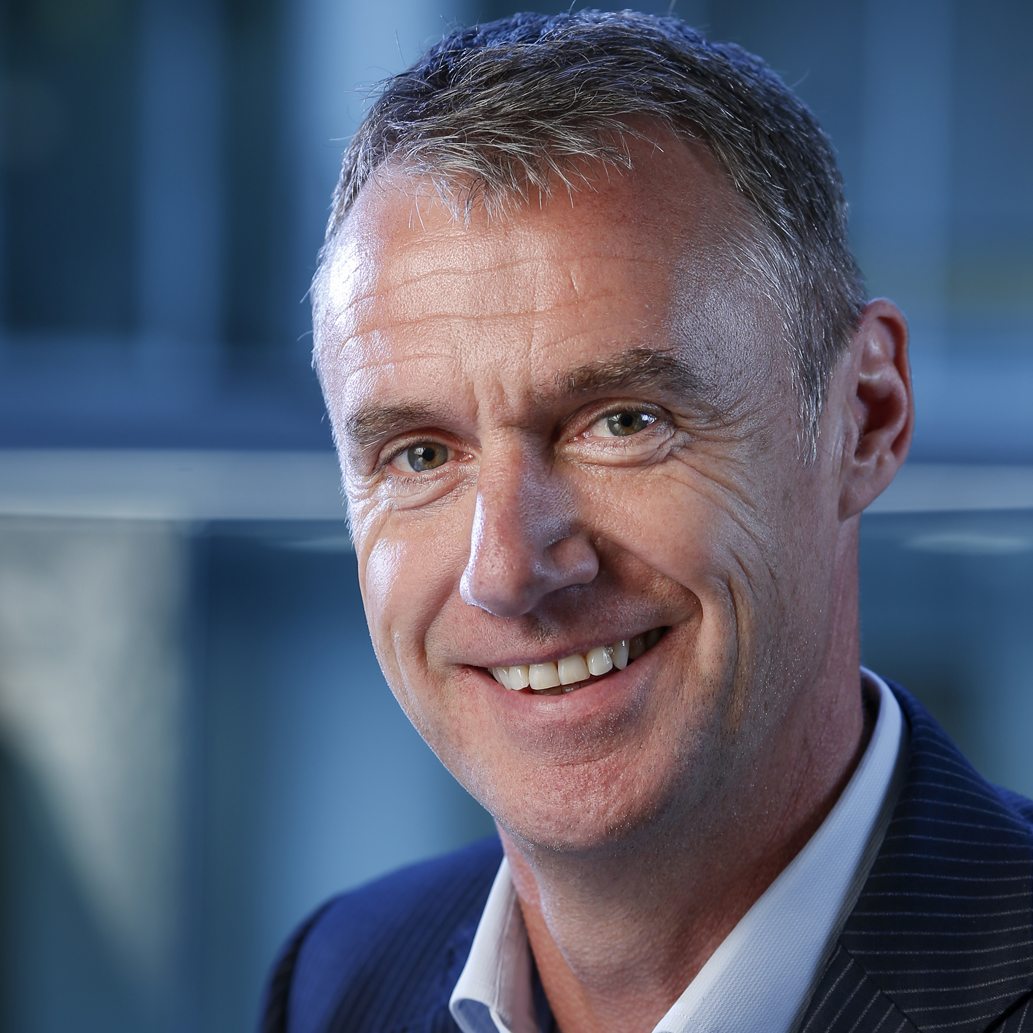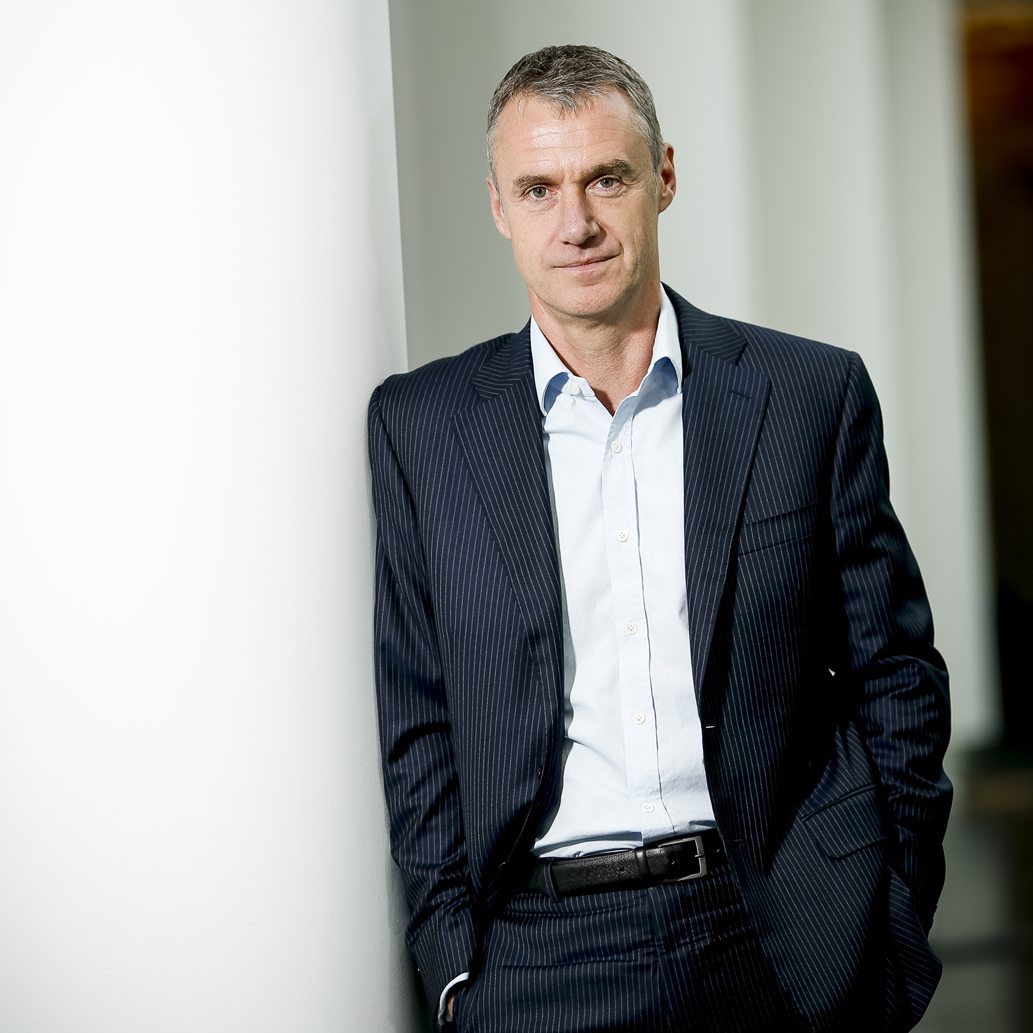Mike, give us an idea about your early life and career.
I went to university at Hull, and knew I wanted to pursue a business career, but was really unsure about the best route to take. My Dad worked for BP and a friend of his was in HR, and we spoke about the sector and its scope and reach. He was very enthusiastic, and it really compelled me to do some research into the sector as a potential career prospect. Something about it really caught my interest and so I went to Bristol University to study my IPD, and even back then, I quickly realised this was a really fascinating aspect of business, dealing with the critical elements of performance, outcomes and success. Having successfully gained my qualifications, I cast my net pretty wide, and I really was open to any prospect that would kick my career off, and I duly got my first personnel role at BOC in Shoreham by Sea. This was a really traditional workplace and my role was primarily about supporting the HR manager at the production site, which was primarily engaged in manufacturing high vacuum pumps for the semi-conductor industry. So it was a proper generalist role and just about the best introduction to the nuts and bolts of HR as you can get.
After three years at BOC, I joined ICI Paints as the personnel manager for manufacturing and sales, and soon after the sales director at the time offered me the role of running the national accounts for Great Mills and Homebase. I liked the sales environment, as it played to my strong competitive spirit, but after two years, it became a bit formulaic and didn’t have the same complexity, and hold the same interest as HR, and so I was asked to come back into HR at ICI. This was just at the time that Hanson was sizing up some of the areas of the ICI portfolio and parts of ICI were broken up and sold off. So this was my first experience of M&A activity, at a frenzied pace and it was big scale and complex work. Then out of the blue, I was contacted by a head-hunter saying that Guinness was looking for an HR director for its UK business. This really was diversification, career-wise, and I was really attracted by the brand, its reputation and the size of the job.

Such an iconic brand, what were your key objectives in this, your first senior HR role?
The Guinness brand, at this time, was moving into retail, with the widget in the can. So clearly what was required was the skills and experience to achieve a large sale retail objective and so a rapid and highly-focused plan went into action, with the objective to attract and recruit retail skills into the business, people that really understood the buying side of the supermarkets business. We also had significant work to do, moving the brewing operation from Park Royal, London, to St. James’s Gate Brewery, Dublin. This was such a compelling role, because it combined my two most favoured areas of business, sales and human resources, the drive for objectives and optimising people performance. Fast forward four years, and I was approached again by a head-hunter, this time for a HR director post at General Electric Capital, based in Brussels – great business, huge role. I was literally on the brink of accepting the job, when it was announced that Guinness was going to merge with Grand Metropolitan, which eventually led to the formation of Diageo PLC. This presented something of a dilemma, a real career crossroads, but after weighing things up, I changed my mind and stayed on. One of the reasons that swayed my decision was that I was offered the role of head of transformation, and I led the change programme to integrate Guinness into the new company. This was one of the most challenging roles of my career because of the scale of the change and the tight deadlines to complete the work.
Post-merger, we restructured Diageo into different market segments and I took on the role of HR Director in venture markets, with a responsibility of 30 to 40 markets in Europe, South America, Asia and Middle East – which was attractive to me, because it was international, commercial and entrepreneurial. I had a terrific time, the business was growing and there were a multitude of HR issues to deal with across four different continents. I was travelling 80 percent of the time, and it was the sort of job you could only do for a couple of years before burning out. We had also just started a family, so I took a sabbatical leave, and this was the first real opportunity in my working life that I had the time to contemplate my future. Personally, I didn’t want to be away from my family travelling all the time, and I was fortunate enough to be offered Head of HR at Diageo North America, based in Connecticut. So we moved to the US.
As jobs go, this was different again, very large, single market, dealing with major acquisitions and restructuring across the business. The big focus was on talent, leadership development and talent acquisition, but after four years we moved back to the UK, and luck came in again, as I was presented with the possibility of a role as Group HR Director at National Grid. Of course, a really different sector again, and I was really not sure. Although I was attracted by the scale of the business and also the opportunity to experience a new sector – and Steve Holliday (CEO) did a fantastic job explaining what was happening in the energy sector and the implications for National Grid – such a good job in fact that I felt compelled to take the job.

What were the key HR objectives, and how did you set about rapidly getting up to speed?
Well there was certainly no time to take in the view! I literally came into the eye of a storm, in the midst of a big acquisition in the US, and I had a lot of catching up to do, learning about how the energy sector ticked and how National Grid fitted into the picture. The energy sector is changing rapidly, big issues around; moving to a low carbon economy, security of supply, cost and value to the customer. The HR challenges are significant: the ageing workforce is top of the agenda – 50 percent of the workforce will retire in the next ten years, equally up there is the shortage of highly-qualified engineering talent, in the face of rapid growth. National Grid will spend circa £3.5b per annum on new capital expenditure – new regulatory regime requiring a significant change in organisational capability.

The lack of skills in engineering is widely considered one of the biggest concerns for the future of the UK economy, is it really that bad?
Yes, unquestionably it is. Sixty percent of all new jobs in the UK over the next ten years will rely on sciences, technology, engineering and mathematics (STEM), but what is patently clear is, that not enough school leavers are pursuing these subjects and fewer still succeed in these subjects. What must be done as a matter of urgency is to raise awareness and aspirations in these skills and career paths. National Grid and other employees are making big inroads with schools, parents and government departments, but there is so much still to do. Our people have really responded to the challenge, of going into schools and working with children and teachers about the future of this sector, and getting them excited about the role they can play. I think the headline for this is, the future health of the UK economy is going to be heavily reliant on engineering and technology, and we need to do everything we can to prepare the next generation for this challenge. Has the introduction of University fees made any difference to students choosing more vocational training? Could this positively impact on the engineering skills deficit? Certainly the quality and quantity of students coming to our apprenticeships and advance engineering programmes, post A-level intake, is very high. It is also no barrier to how far these students can progress in the company. The days when only graduates could ‘fast track’ are long gone. But an organisation like ours will always benefit from a multi-channel talent pipeline, and so we are continuing to attract graduates as part of the overall mix.
What are the other key challenges for the organisation in the future and how is HR positioned to meet the needs of the business?
Our ultimate objective is to keep the lights on in the UK. We build, maintain, repair and replace the Gas and Electric networks and make sure it’s doing its job today, but also looking around the corner and planning ahead in order to connect people to their energy needs tomorrow. With the move to a lower carbon economy, there is a reduction in the number of coal fire generation stations and an increase in renewables such as wind. This is the right direction, but it presents significant challenges to National Grid. For example; how to balance the Grid when a significant proportion of your generation is intermittent, i.e. when the wind isn’t blowing. In addition, with the North Sea gas shelf rapidly depleting, how do we connect to continental Europe and create security of supply? These are exciting business and engineering challenges and it’s great to work for a company which is right at the heart of it
The power utilities sector courts a lot of controversy in the sector e.g. the environmental impact of wind farms, fracking, and the escalation of bills in the light of increasing profits. As HR is the custodian of CSR, what role can you play in improving outcomes in such matters?
I am not sure HR is the custodian of CSR, but it does have a vital role to play. For example, I am proud of the fact that National Grid has just received a prestigious award, being named Responsible Business of the Year by Business in the Community. This is a recognition of the work the company has done in the area of sustainability, volunteerism, education and skills, the HR team has been a major force in all of them. It is important for companies, like National Grid to engage in the broader public debate on energy. We all need to listen and to understand the different points of view. As a result of local meetings, we’ve changed things that we do, we’ve changed pylon routes for example, and explained why alternatives, such as underground lines, are not always feasible. For the business, over the next four years, it’s about making our existing footprints work better than they are at the moment, reliability, customer service, safety, value for money and efficiency are key. At the same time, maintaining the asset base we have is a huge task, which has to be balanced against returning value for our shareholders and stakeholders. HR has a critical role in building the critical capabilities, which will deliver sustainable performance. For National Grid these are; performance and process excellence, stakeholder and customer management, and contract management. We use our global learning and development to rapidly build these skills.
What does the National Grid represent for the future of energy generation, as it becomes more challenging to bring power to consumers?
National Grid occupies a unique position in the energy market. While we don’t own energy generating assets in the UK, we are responsible for the minute-by-minute balancing of electricity supply and demand. This gives us a valuable insight into the sector and what the future may hold for it, and we do a lot of work to engage with the sector and share the insights we have. Our annual Future Energy Scenarios exercise, for example, is increasingly defining our expertise in this area. So, in the future, our role as a pivotal player and trusted advisor will be essential. As new trends in energy generation and demand come to the fore, our ability to provide insight will be increasingly and constantly a central aspect of our business.
You’ve often had one foot in HR and one in the commercial elements of business. I guess from this perspective, you are well qualified to make the case for HR being business-aligned.
HR being aligned and integral to the business is basically “table stakes”. It is difficult to make a meaningful contribution if this is not in place. I always think the key is picking a few key strategic initiatives, which will have a disproportional impact on your particular business, and executing them exceptionally well.
You must look back and wonder what would have happened if, for example you had taken the job at General Electric.
HR has served me well – I have been and worked alongside some exceptionally talented people, and had fun along the way. You do wonder from time to time, but I tend to look forward and focus on the hand you’re dealt and apply yourself to that. I am sure I would have done the same had I gone to GE. Unquestionably, in some businesses, HR has had a tough time, but through the course of the last couple of decades, I think HR has shown it has a brave face, and has shouldered a great deal of the transformation that business has undergone. With HR, there’s no hiding place and, whether it’s good or bad, you have to stand up and look people in the eye. For that reason, HR deserves huge respect in my book.
FOR FURTHER INFO
www.nationalgrid.com/uk/
National Grid Facts & Figures
National Grid owns and manages the grids that connect people to the energy they need. In Britain it runs systems that deliver electricity to millions of people, businesses and communities.
ELECTRICITY
National Grid plays a vital role in delivering electricity efficiently, reliably and safely. There are four main elements: Generators produce electricity from coal, gas, oil and nuclear power plants and from hydroelectric plants and wind farms. Electricity can’t be stored efficiently so is generated as needed. We don’t own or operate any of these electricity generation plants. Suppliers supply and sell electricity to consumers. They use the transmission and distribution networks to pass the electricity to homes and businesses. The national transmission network, owned by National Grid, maintains the flow of generated electricity through to the regional distribution networks. Distributors own and operate the distribution network of towers and cables that bring electricity from its national transmission network to homes and businesses. It dosen’t sell electricity to consumers, but owns and maintains the high-voltage electricity transmission network in England and Wales (Scotland has its own networks), balancing supply with demand on a minute-by-minute basis. The network carries electricity from the generators to substations where the voltage is lowered ready for distribution. Most of the network is overhead lines, underground cables and substations.
GAS
All gas in the UK passes through National Grid’s national transmission system on its way to consumers. As the sole owner and operator of gas transmission infrastructure in the UK, we work with other companies to ensure that gas is available where and when it’s needed. In the UK, gas leaves the transmission system and enters the distribution networks at high pressure. It is then transported through a number of reducing pressure tiers until it is finally delivered to consumers. There are eight regional distribution networks, four of which are owned by National Grid. Gas is owned by the gas supplier, however, National Grid is responsible for this gas whilst it is being transported. The UK distribution networks deliver gas to around 10.8 million consumers.










